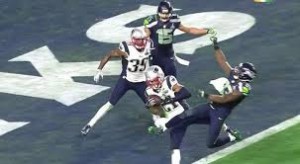Good Decisions, Bad Outcomes

Bad Decision or Bad Outcome?
The New England Patriots won the Super Bowl because their opponents, the Seattle Seahawks, made a bad decision. That’s what millions of sports fans in the United States believe this week.
But was it a bad decision or merely a bad outcome? We often evaluate whether a decision was good or bad based on the result. But Ronald Howard, the father of decision analysis, says that you need to separate the two. You can only judge whether a decision was good or bad by studying how the decision was made.
Howard writes that the outcome has nothing to do with the quality of the decision process. A good decision can yield a good result or a bad result. Similarly, a bad decision can generate a good or bad outcome. Don’t assume that the decision causes the result. It’s not so simple. Something entirely random or unforeseen can turn a good decision into a bad result or vice versa.
But, as my boss used to say, we only care about results. So why bother to study the decision process? We should study only what counts – the result of the process, not the process itself.
Well, … not so fast. Let’s say we make a decision based entirely on emotion and gut feel. Let’s also assume that things turn out just great. Did we make a good decision? Maybe. Or maybe we just got lucky.
During the penny stock market boom in Denver, I decided to invest $500 in a wildcat oil company whose stock was selling for ten cents a share. In two weeks, the stock tripled to 31 cents per share. I had turned my $500 stake into $1,500. I was a genius! (There’s a touch of confirmation bias here).
What’s wrong with this story? I assumed that I had made a good decision because I got a good outcome. I must be smart. But, really, I was just lucky. And you probably know the rest of the story. Assuming that I was a smart stock picker, I re-invested the $1,500 and – over the next six months – lost it all.
Today, when I evaluate stocks with the aim of buying something, I repeat a little mantra: “I am not a genius. I am not a genius.” It creates a much better decision process.
I was lucky and got a good outcome from a bad decision process. The Seattle Seahawks, on the other hand, got the opposite. From what I’ve read, they had a good process and made a good decision. They got a horrendous result. Even though their fans will vilify the Seahawks’ coaches, I wouldn’t change their decision process.
And that’s the point here. If you want good decisions, study the decision process and ignore the outcome. You’ll get better processes and better decisions. In the long run, that will tilt the odds in your favor. Chance favors the thoughtful decision maker.
What makes for a good decision process? I’ll write more about that in the coming weeks. In the meantime, you might like two video clips from Roch Pararye, a professor at the University of Pennsylvania, who explains why we separate decision processes from decision results. (Click here and here).
One Response to Good Decisions, Bad Outcomes
-
Pingback: Three Decision Philosophies | Travis White Communications